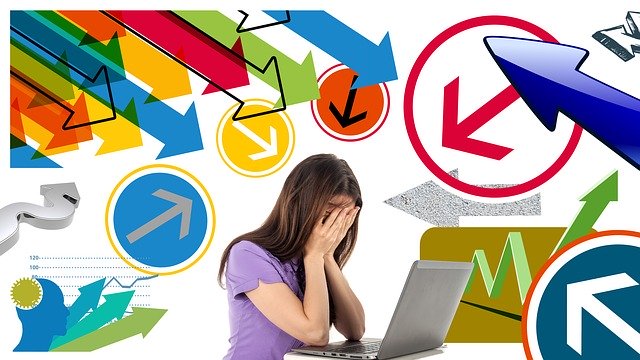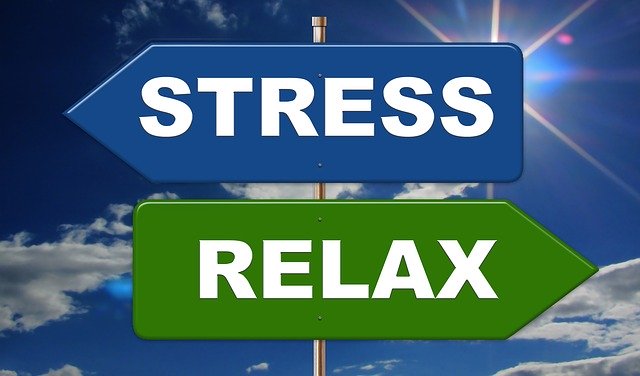Stress at Work
Stress refers to the reaction of our body to any change, demand, response, adjustment, or threat.

Common symptoms of stress are as follow -:
-
- Insomnia
-
- Headache
-
- Upset stomach
-
- Aches, pain
-
- Tense muscle etc.
Types of stress are as follow -:
Acute stress -: It is also known as short – term as it goes quickly. Acute stress is the most common and frequent type of stress among people. Acute stress most of the time comes quickly and usually its unexpectedly. Acute stress does last for last time.
Chronic stress -: It is the type of stress which occurs on regular basis. It is the most harmful stress. If the chronic stress is not effectively manipulated it may leave the person feeling drained, can also lead to burnout physical health of an individual. During chronic stress the emotional reactions and behavioral actions are ignored. It even destroys lives, bodies and even mind.
Not all the stress is bad, a little bit of stress is must to stay focused, energetic and able to meet new challenges in the workplace. But these days workplace seems to a lot of stress like an emotional roller coaster. Long hours on work, short deadlines are reasons that why people are worried, drained and overwhelmed.

Common causes of workplace stress include -:
-
- Fear of being laid off
-
- Overtime due to less time available
-
- Pressure to work at optimum levels
-
- Lack of control over how you do your work.
Warning signs of stress at work -:
-
- Feeling anxious, irritable or depressed
-
- Loss of interest in work, apathy
-
- Problems in sleeping
-
- Fatigue
-
- Social withdrawal
-
- Stomach problems
-
- Concentration problem
-
- Headache or muscle tension
-
- Using drugs or alcohol to cope
-
- Loss of sex drive

Some of the stress management techniques are as follow -:
Have social contact -: Sharing your problems with your close one’s is the best stress reducer. Getting support and sympathy especially when its face to face, it can be the effective way of regaining your sense of calm. The other person does not have to have to advice you or fix your problems, they just need to be a good listener. And having a strong network of supportive family and friends is very important for managing stress in all areas of life. You can also always make new friend if you feel that you have no one to talk at free time. Meet new people with common interests by joining a club or by volunteering your time.
Take healthy food and exercise daily -: We usually neglect our physical health when we are overloaded with work. But by supporting your health with good nutrition and exercise, you will become more stronger and will be able to cope up with stress. We can do aerobic exercise as it raises the heart rate and makes you sweat which is a very effective way to lift your mood, increase energy, relax both the body and mind and sharpen the focus.
Your food choices also impact how you feel during the work day. Eating healthy food in small quantity maintains the level of blood sugar which further maintains your energy, focus and prevents mood swings. Low blood sugar can also make you feel irritable and anxious while eating too much may make you lethargic.
Don’t skip your sleep -: Sometimes due to overload of work we may feel that we don’t have the time for full night sleep but then skipping your sleep interferes with your daytime productivity, problem solving skills, creativity and ability to focus. The more relaxed you are, the more you will be able to tackle with your job. Trying improving the quality of sleep you have, e.g. go to bed on time and get up also on time even on the weekends and always stay smart with what you eat and drink during the day and make adjustments to your sleep environment. At least have the aim for 8 hours of sleep at night.
Manage your time efficiently -: Doing work whole day without any physical activity lead to burnout so make the balance between work and family, social life, daily responsibilities or have the balance between your personal and professional life.
Also leave 10 – 15 minutes earlier for the office, if you are always running late, this will also give you time to ease into your day. Have short breaks throughout the day to take a walk or talk with a friend or relaxation technique.
Don’t expect too much from you at least more than your capacity. Trying avoiding to schedule things back to back or trying to fit too much into one day.
Break your bad habits that lead to stress -: Don’t set unrealistic goals for yourself, just aim to do your best. Don’t focus on the downside of every situation or interaction you will always find yourself drained of energy and motivation. Think positive about your work and avoid the negative co – workers.